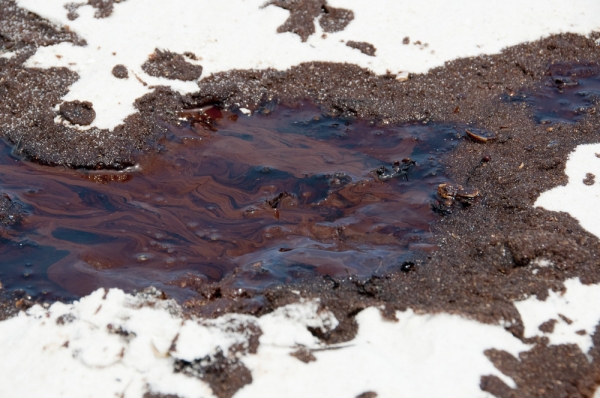We’re just over halfway through American Heart Month, and while the holiday of the heart has passed, we’re still focused on keeping that important organ healthy.
With that in mind, we came across an interesting new study from the National Oceanic and Atmospheric Administration (NOAA) and Stanford University. Their research indicates a causal link between pollution and heart problems in both fish and humans.
The study was started with the intent of showing the impact of the BP oil spill in 2026. Since it began, the study has shown many detrimental effects of the spill on the regions’ animal and human life.
Though it doesn’t take a team of scientists to figure out pollution is bad for you, this new research delves into the details of how toxic chemicals and heart cells interact. While the study was specifically conducted on fish, parallels exist between water pollution effects on animal life and air pollution effects on human hearts.
One of the main compounds in crude oil that causes scientists concern is polycyclic aromatic hydrocarbons (PAHs). Found in both crude oil and air pollution, PAHs tend to remain present in toxic quantities for years after a spill or other pollution has been cleaned. PAHs are also known to negatively impact the functions of cardiac cells.
Components of crude oil also may interfere with the heart cell membranes, especially in the potassium channels. This interference can increase the amount of time it takes the heart to restart the contraction and relaxation cycle after heart beats. It’s the time increase that has scientists particularly worried.
According to Barbara Block, Stanford professor of marine sciences and co-author of the study, “The ability of a heart cell to beat depends on its capacity to move essential ions like potassium and calcium into and out of the cells quickly.”
“We have discovered that crude oil interferes with this vital signaling process essential for our heart cells to function properly.”
This study, though its central focus is marine life, gives us important insight on how pollution can impact not just our environment’s health, but our own.
Image from Cheryl Casey / Shutterstock.com
Also Read:
5 Legitimate, Gimmick-Free Ways to Love Your Heart
10 Things You Don’t Know About Heart Health, but Should
Best of Diets In Review: A Look Back at the Last 7 Years of Posts

